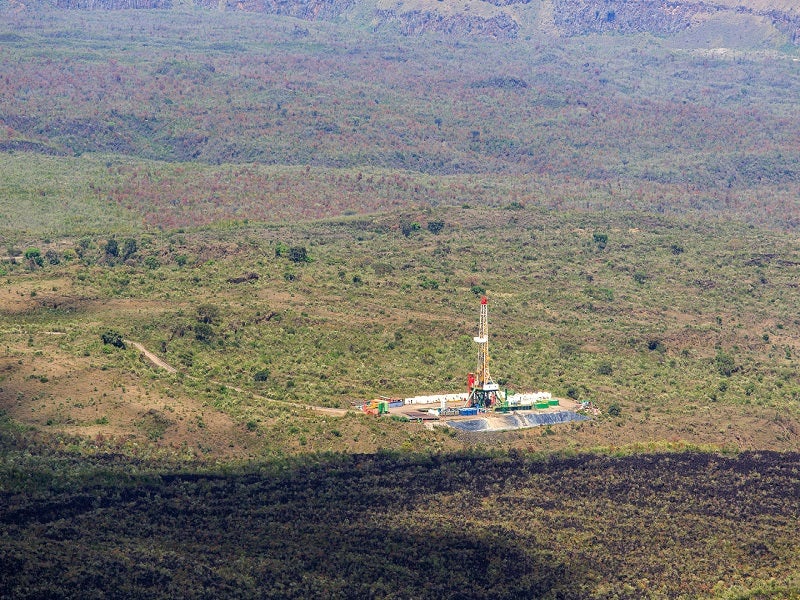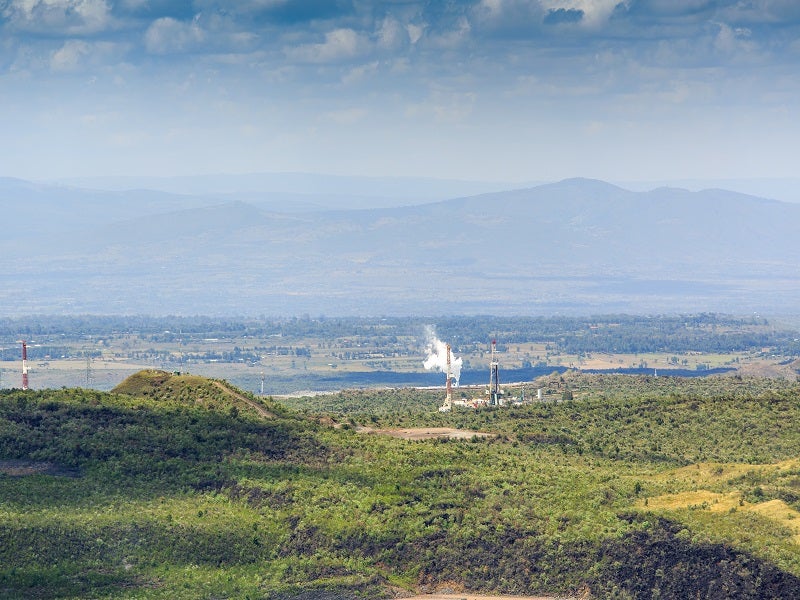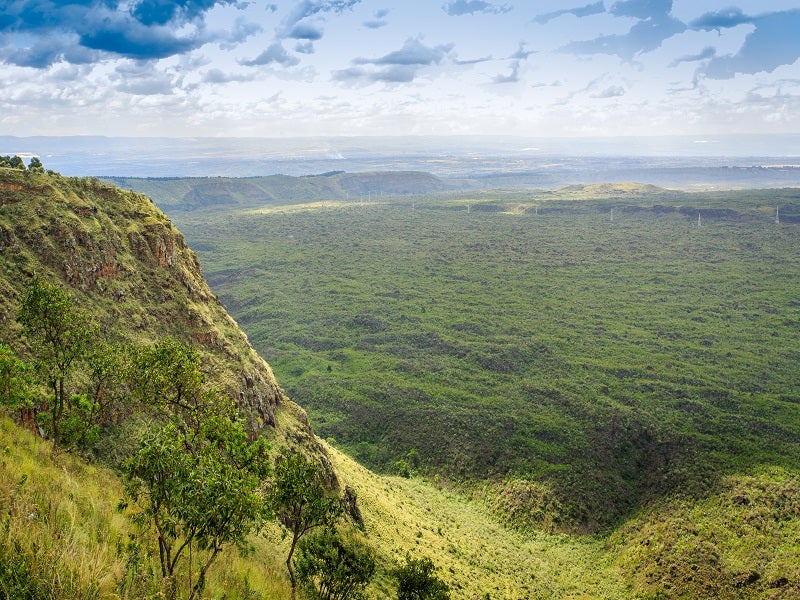The Menengai geothermal power project is an ongoing energy development project at Menengai Caldera (crater) in Kenya.
The project has the potential to generate up to 1.6GW and is anticipated to be the largest geothermal field being developed in Kenya.
State-owned Geothermal Development Company (GDC) committed to optimising the geothermal resources of Kenya is developing the project.
The project’s development commenced in 2009 to meet the increasing power needs of Kenya using diversified sources of power supply.
The geothermal power project is being implemented in five phases, of which the first phase comprising a capacity of 105MW is currently under development.
The first phase of the development is expected to commence operations in 2025.
Project location
The Menengai Caldera where the Menengai geothermal plant is being developed is located within the Rongai and Nakuru North subcounties of Nakuru County, Kenya.
The project site is approximately 180km to the north-west of Nairobi.
Menengai geothermal project details
The Menengai geothermal plant is slated for development in five phases, with a total power output of 465MW.
The initial phase of the project entails the construction of three thermal power plants within the Menengai Caldera on a build-own-operate (BOO) basis, each with a capacity of 35MW, culminating in a combined output of 105MW.
The second phase is positioned in the eastern sector of the Menengai Caldera and is set to generate 60MW. The drilling of exploratory wells and geoscientific studies for this phase have already been completed.
Subsequent phases are planned for the broader northwestern area of the Menengai Caldera.
Additionally, the project encompasses the establishment of 50km of road networks, a 30km water supply system, 25.5km of steam gathering systems, and a campsite area.
The steam gathering system boasts the capacity to transport 1,200 tonnes of steam per hour, which exceeds the requirements for the first phase. The system will be supplied by 13 wells.
Menengai geothermal power project phase one details
GDC entered into a project implementation and steam supply agreement with three independent power producers on a BOO basis for the development of three power plants under the first phase. GDC will supply steam to these producers who will convert it into electricity, under this agreement.
The IPPs include Quantum Power East Africa (QPEA) GT Menengai, a special-purpose vehicle established by QPEA. In 2021, Globeleq, a power company, acquired QPEA. The company broke ground for its power plant in June 2023.
Orpower Twenty-Two, a consortium comprising Ormat, Civicon, and Symbion Power, was appointed to construct and manage the second power plant in 2013, with an operational tenure of 25 years.
Sosian Menengai Geothermal Power (Sosian) secured the tender to develop the third power plant. Sosian commenced construction of its power plant in 2021 and it is now completed.
Financing
The financial close for Globeleq’s 35MW plant, part of the first phase, was achieved in December 2023. The power plant will be developed with an estimated investment of $117m.
African Development Bank and Eastern and Southern African Trade & Development Bank and Finnfund signed a financing agreement of $72m with Globeleq in December 2022.
African Development Bank Group approved $29.5m in funds and a Clean Technology Fund concessional loan of $20m for the development of the power plant by QPEA in June 2018.
Power purchase agreement
Kenya Electricity Transmission Company (KPLC) will off-take the power produced by the three power plants of the first phase for 25 years.
KPLC has constructed a power substation and 132kV overhead transmission line for evacuating the power to the Soila substation located in the industrial area of Nakuru.
Contractors involved
Globeleq awarded the engineering, procurement, and construction contract for its power plant to Toyota Tsusho of the Toyota Group in February 2023. The contract also encompasses a long-term service agreement for the power plant.
Toyota Tsusho subcontracted Fuji Electric in February 2023 to supply a geothermal facility for the project’s power station.
The contract’s scope covers the manufacturing and provision of a geothermal steam turbine, generator, and other associated equipment. CSI Energy Group, a construction company, will oversee the construction work.
Crovik, in collaboration with Bureau Veritas, offered management and supervision consultancy services to the project.
Tetra Tech, a consulting and engineering service provider, conducted an independent assessment of the geothermal exploration and drilling programme, and analysed steam well production for the first of the project.





